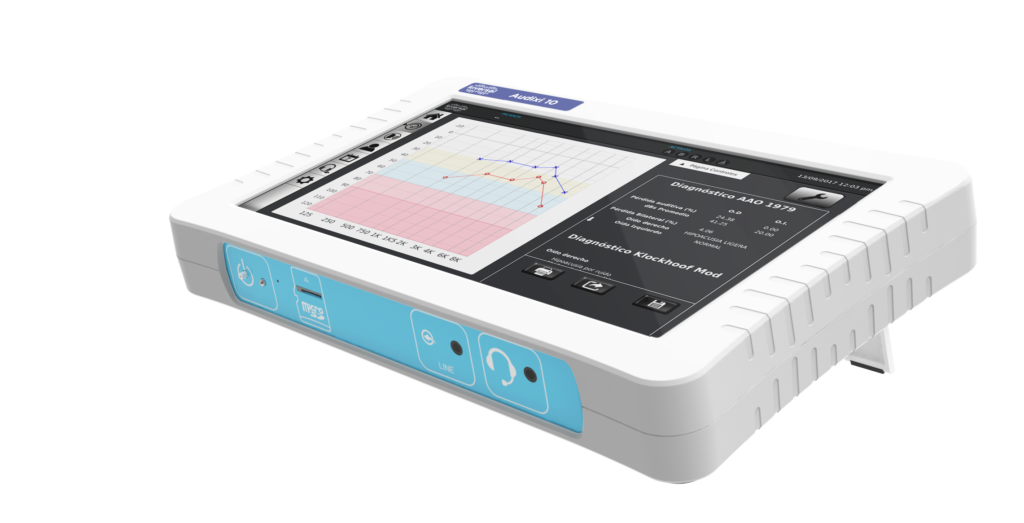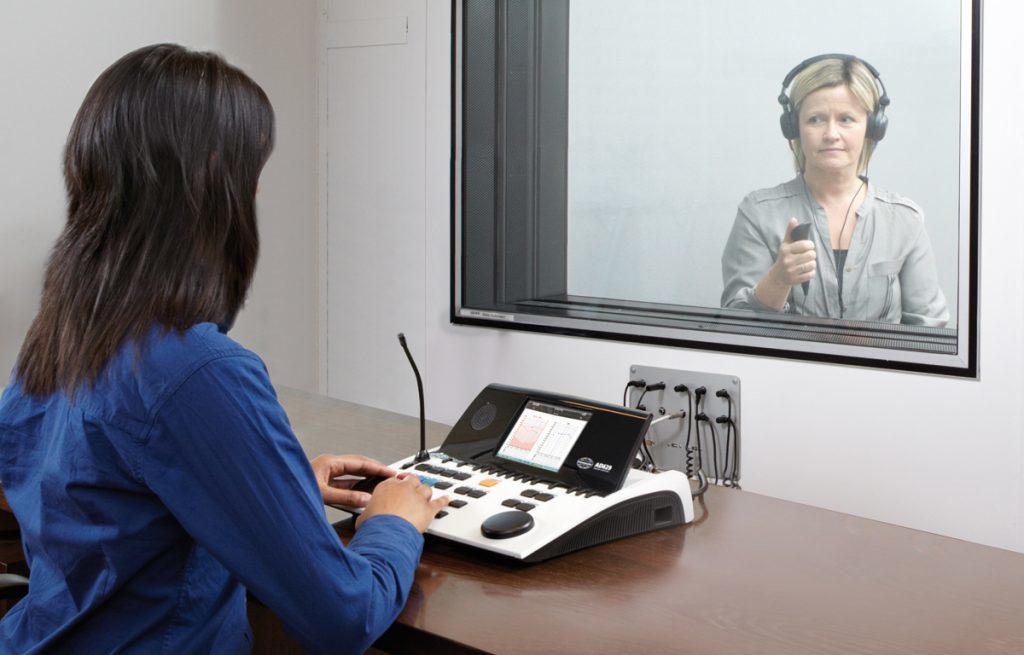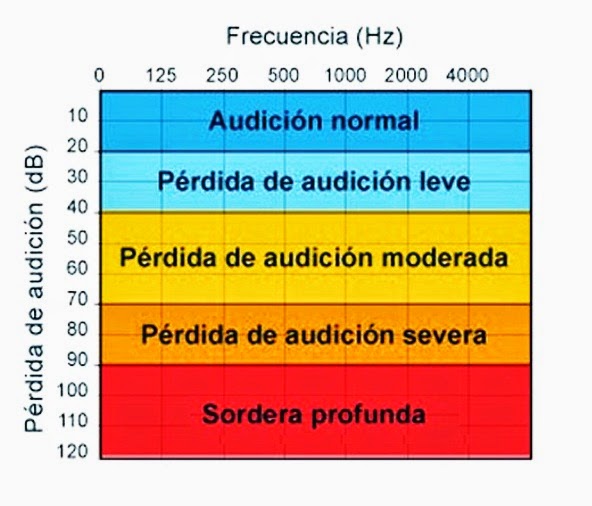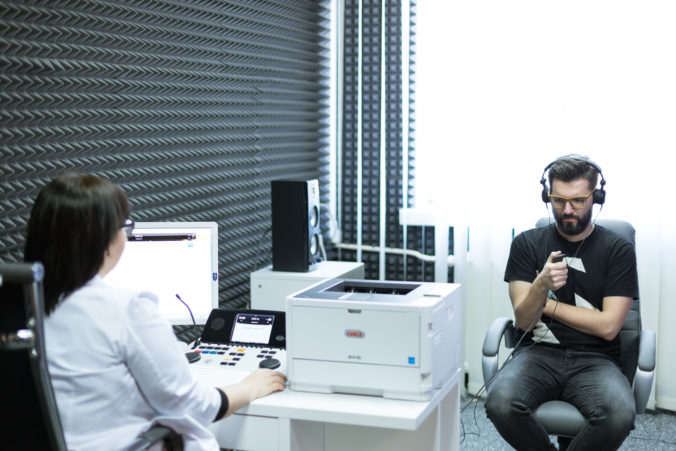Pure tone audiometry measures the capacity of a person’s auditory system (hearing). In this article, we will explain when and why you should book an appointment to see a specialist and request a hearing test.
The best diagnosis for your ears: pure tone hearing tests
As its name suggests, a pure tone hearing test uses pure tones to determine if a person can perceive every frequency in the audible spectrum.
This type of hearing test is classed as a subjective test and is carried out using a device called an audiometer.
The audiometer registers the results in an audiogram and reveals if your hearing is affected in terms of sound transmission in the middle ear (conductive hearing loss) or damage in the inner ear (sensorineural hearing loss), which helps the specialist to identify the most suitable treatment for the issue.

What types of pure tone hearing tests are used?
- Threshold hearing tests: these determine the subject’s capacity to recognize sounds at a specific frequency or volume. Headphones are used in this to establish the auditory or hearing threshold, which is marked by the last sound that the patient hears, and therefore represents their minimum hearing level.
- High-frequency (supraliminal) pure tone tests: these are used to evaluate the subject’s hearing fatigue and any disturbances or impairment above their threshold of hearing. The test is carried out under three main parameters: intensity, frequency and duration.

Photo credit: denoc hearing
These hearing tests are usually carried out in a testing booth or acoustic chamber, which are covered with sound-absorbing materials the help to reduce the reflection of noise and standing waves.
How is hearing loss or impairment classified in a pure tone hearing test?
In pure tone audiometry, hearing thresholds are expressed in decibels of hearing loss (dB of HL) and are compared against the average hearing threshold (0 dB). Different degrees of hearing loss or impairment are classified in the following way:
- Normal hearing: threshold under 20 dB HL.
- Slight hearing loss: 20 – 40 dB HL.
- Moderate: 40 -70 dB HL.
- Severe: 70 -90 dB HL.
- Profound: 90 – 120 dB HL.
- Cophosis or anacusis (total deafness): in excess of 120 dB HL.

Different degrees of hearing loss or impairment
When should I have a pure tone hearing test?
It is vital you see your doctor as soon as possible if you detect any kind of hearing loss. We recommend you request a pure tone hearing test at several stages in your life:
- Possible deafness: hearing loss is a common issue, so if you notice any symptoms or have any issues with your hearing, get it tested as soon as possible to prevent further damage and find the correct treatment plan for you.
- Over-60s: a hearing test is recommended every 3 years for everyone over the age of 60 to detect possible age-related hearing loss (presbycusis).
- Certain high-risk diseases: your hearing can be damaged by certain diseases such as meningitis, depression and other serious illnesses, and should always be checked when you have recovered.
- Annual health assessment: while workers may opt out of this check-up that employers are obliged to offer in the workplace, it may be useful in detecting possible hearing issues.
Make a note of the different stages at which you should visit your medical specialist to request a pure tone hearing test – it could save your hearing.
Do you have any doubts or questions about hearing tests? Leave a comment here and we will answer you as soon as possible.

Oh wow, thank you for clarifying that we are considered to be totally deaf if our hearing loss level exceeds 120 decibels. Since last week, my grandma has been struggling to listen to normal conversations between her and other people. I think she should make an appointment to check her ears immediately.
Hi, Amy! Thank you for your comment and for sharing your grandma’s experience. Yes, definitely she shoulg go to an specialist to get her ears checked.
My niece has been playing loud music on her headphones for so long that she has now come to the conclusion that it may be time to have a hearing test as her friends now virtually have to yell at her to pay attention. She hopes it’s simply the music and not her own bias! She has to know that hearing tests are often conducted in a testing booth or acoustic chamber that is lined with sound-absorbing materials to lessen standing waves and noise reflection.
Thanks for sharing the experience, Lily!
It’s a good idea for your niece to consider getting a hearing test, as prolonged exposure to loud music can potentially affect her hearing. She’s correct in noting that these tests are often conducted in a specialized sound-absorbing chamber to ensure accurate results.